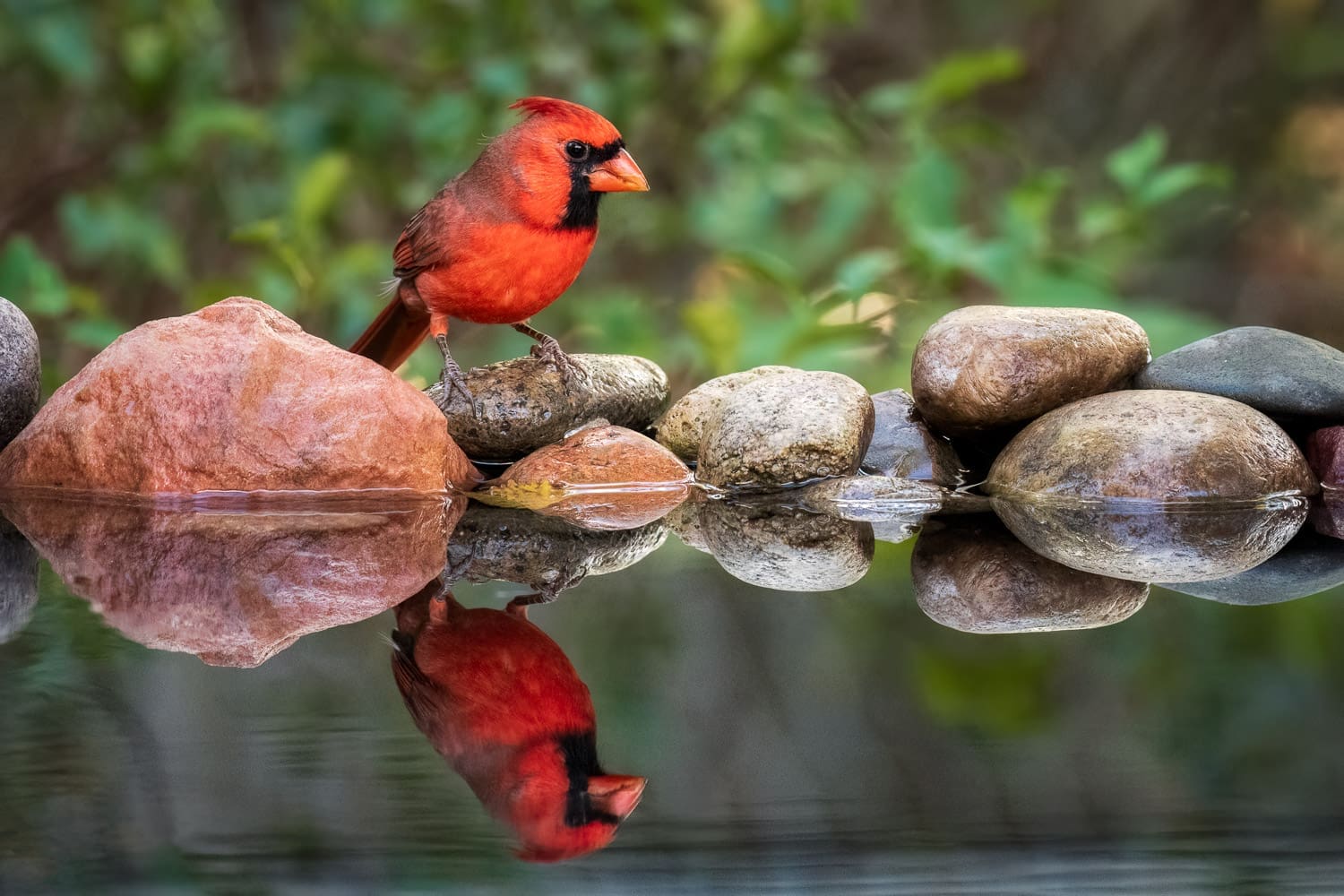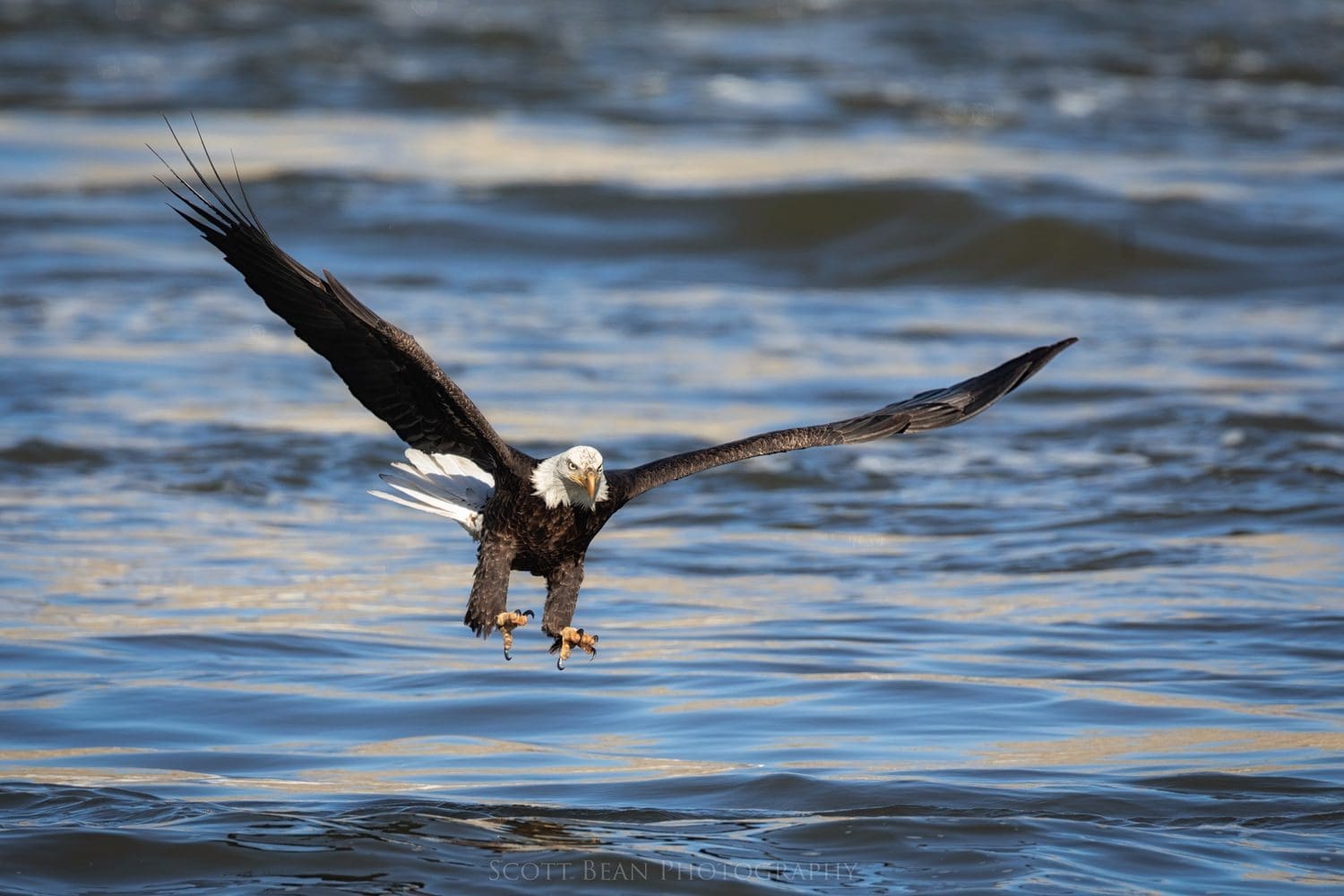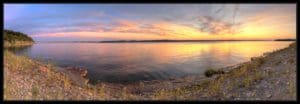
Everyone knows that photography is all about light (and shadows). Often photographers will talk about “the right light” or “magic light”. Photographers can spend hours talking about the “exposure triangle” of shutter speed, f-stop, and ISO and how those factors control the amount of light recorded while making a photograph. I’m sure my wife can verify that I am often obsessed with light. And in my defense, light is extremely important to photography. Learning how to control your camera and how various camera settings influence the amount of light recorded is fundamental to making the photographs you want to make. The technical side of things is also important to photography. When it comes to the creative side of things though, I think it is important to remember that making a good photograph is not about simply recording light.
I’m drawn to photograph water. Moving water especially, but also (relatively) still water. This was especially true this summer while we were suffering through a brutal heat wave (Note to Mother Nature: No brutal heat waves next summer please, thanks!). If photography is just about capturing light, am I drawn simply to record the amount of light being reflected off the water in front of me? If making a photograph is simply about recording light, then that should be the case. I can set my f-stop, shutter speed, and ISO to record a set amount of light, press the shutter, and create my masterpiece (it seems that this is what the camera manufacturers would often have you believe, put the camera in auto everything mode, press the button and bingo, one perfect photo created!). Of course we all know this isn’t the case (thankfully, how boring would that be!). But why isn’t it? It is because creating a photograph is not about simply recording light, it is about recording an experience. And not just a visual experience, but an auditory, tactile, olfactory (never thought I would work that word into a blog post!), and emotional experience. And to make things really challenging, this all has to be recorded by a relatively dumb device that simply records light; and in only two dimensions to boot!
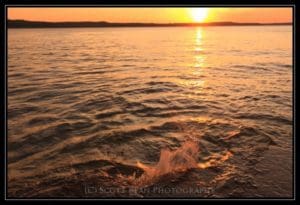
So what does this have to do with me being drawn to photograph water? Well certainly the light being reflected off water can be extremely beautiful. But what I really like about water is the sound it makes; running over rocks, waves coming ashore, the sound of rain falling, etc. The sound of water is a major reason I like to photograph water. The sound is part of the experience I want to capture and share. In my opinion, my strongest water images (at least of moving water) are those that provide an idea of what the water might have sounded like when I pressed the shutter button. In the photograph above, I was really fascinated by the waves coming ashore when boats would go by. Yes the light was amazing (that’s why I was there at sunset, duh!), but the sound of the waves coming ashore was what caught my attention. But a camera only records light right (yes you can do slide shows with sound, but that is not what I’m talking about here). If the camera only records light, how would you try to capture the experience of sound in a photograph? This is where composition comes into play. Composition is how you arrange the world before you through your lens. In the photograph above I composed my photograph to record a wave just as it hit the shore, and just as it made the sound I was so interested in. But recording this experience was also more than just composition, it was also getting the shutter speed right to ‘freeze’ the wave as it came ashore.
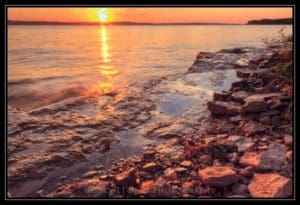
In this next photograph, I think the experience I wanted to share was the whole experience of sitting on the shoreline and watching and listening to the waves come ashore. Here it was important to me that the viewer (that’s you) get a sense of what it would have been like to have been sitting on the shoreline with me. I needed to capture the light, the water, the waves coming ashore and also some of the shoreline; especially the small uneven rocks along the shore that made it a bit difficult to walk across (and kneel on!). I hope this photograph conveys a much greater experience that simply the light that was being reflected into my camera when I clicked the shutter.
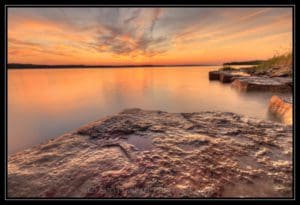
Any experience you have is also going to have an emotional component to it. One of the primary emotions I have when I’m out making landscape photographs is one of feeling relaxed and calm. In the next photograph above, I wanted to convey how peaceful it was along the shore of Tuttle Creek lake that night after the boats had all left the lake. I like to make photographs of places that I think would be great places to just simply be. This was one of those places. I used a variable neutral density filter to achieve a long shutter speed to help smooth the surface of the lake and emphasize the feeling of calm that I was experiencing. I selected my composition to show the rock in the foreground prominently to provide an idea that this would be a great place to just sit or stand.
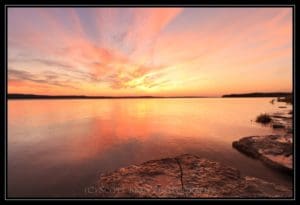
Of course I don’t want to downplay the importance of light; light and colors are also key components of any visual experience. This next photograph was one of the light. The composition isn’t that different from the previous photograph, but the colors had really intensified and I think I remember even saying to myself “wow look at that color”. The experience here was one of awe at the color in the sky and reflected in the water.
Photography is a strange mix of technical ‘stuff’ and creative ‘stuff’. Merging the technical and creative worlds is probably a challenge in any art, but I think especially so in photography. It can be hard to figure out how both sides of photography relate to each other and sometimes it is easy to lose sight of why we even have a camera in hand. For me at least, the why is always going to relate to the experience I’m having. If I can remember to take that into account at the moment, the photographs I create will be the better for it…and so will I.

